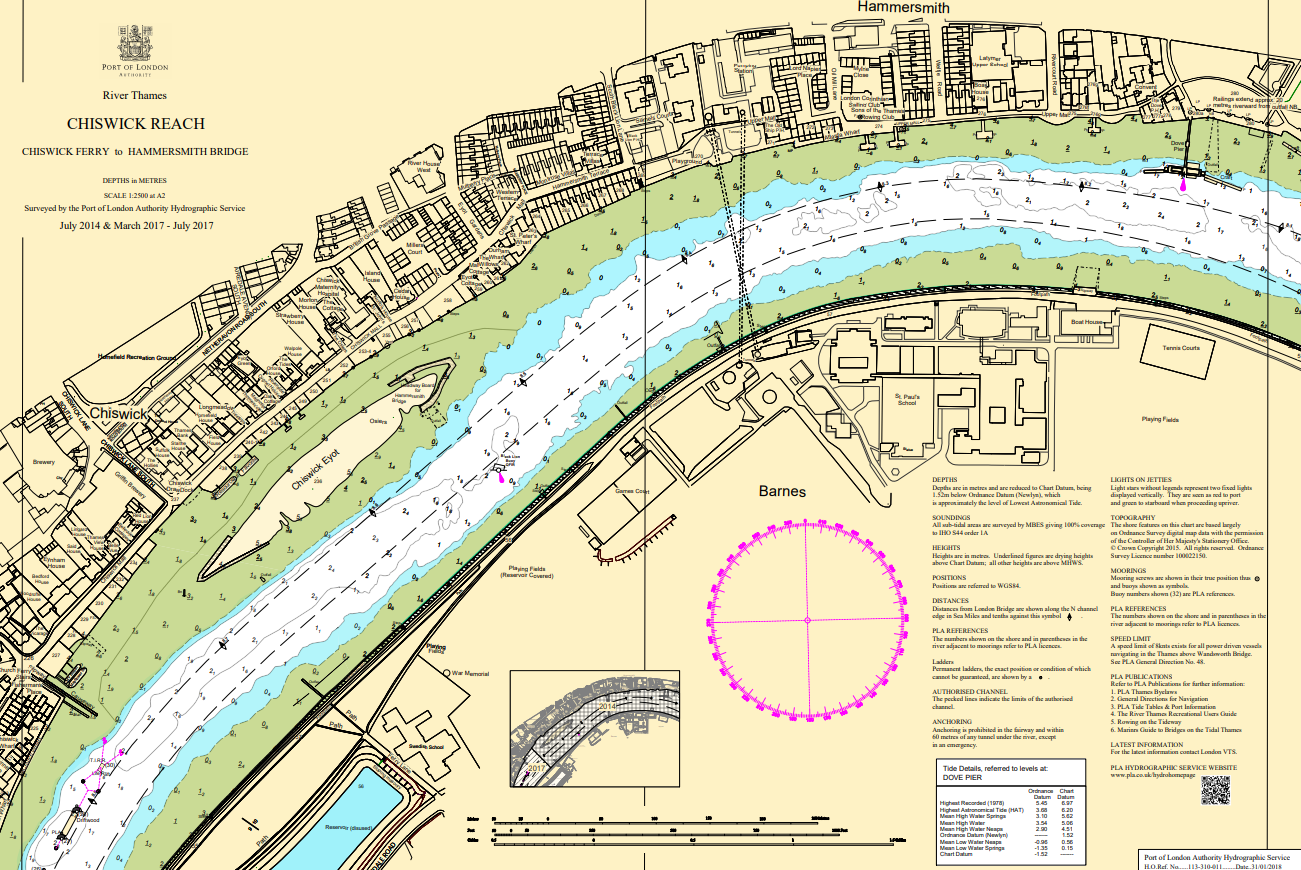Live Tides
NOTICES TO MARINERS
Charts & Surveys

Incident reporting
Life-threatening emergencies on the river:
Call 999 and ask for the Coastguard
For near miss, safety observations and incident reporting click below
| Notice Ref | SB3-25 |
| Issuer | James Stride |
| Issuer Role | Chief Harbour Master |
| Issue Date | 13/03/2025 |
| Expiration Date | 13/03/2027 |
| District | Safety Bulletin |
| Reach(es) |
This Safety Bulletin is a reminder of the correct procedures and professional etiquette expected when using VHF radio communication. As a vital tool for maritime safety and operational efficiency, the VHF radio must be used in strict compliance with international and national regulations, including the International Telecommunication Union (ITU) Radio Regulations, the International Maritime Organization (IMO) SOLAS Convention (Chapter IV), and the Merchant Shipping (Radio Installations) Regulations 1998, as applicable under UK law.
All river users who regularly operate VHF radio equipment are reminded that VHF radio transmissions must be concise, clear, and strictly relevant to the safety of navigation, operational coordination, or emergency situations. The use of inappropriate language, unnecessary transmission, or non-standard phrases is strictly prohibited and may constitute a breach of the Wireless Telegraphy Act 2006. Furthermore, improper use of VHF channels may lead to penalties under the regulations enforced by the Office of Communications (Ofcom), which governs radio licensing and usage in the UK.
In accordance with the Maritime and Coastguard Agency (MCA) guidance and the ITU Radio Regulations, priority must always be given to distress, urgency, and safety communications. Channel 16 must be continuously monitored unless actively engaged in a transmission on another channel, and it must only be used for hailing, distress, or emergency communications. Routine operational discussions should be conducted on the designated working channels. Regardless of which channel is used, or the subject being discussed, it is repeated that VHF radio transmissions must be concise, clear, and strictly relevant to the safety of navigation, operational coordination, or emergency situations
All communication should be conducted with due respect and without unnecessary chatter or informal exchanges that could compromise the efficiency of maritime operations. Misuse or negligence in VHF communication not only disrupts operational effectiveness but may also endanger lives and maritime safety.
Further Reading
| Title | Description | Link* |
|---|---|---|
| International Convention for the Safety of Life at Sea (SOLAS), Chapter IV | Establishes international standards for radiocommunications for the safety of life at sea. | SOLAS Chapter IV |
| Merchant Shipping (Radiocommunications) (Amendment) Regulations 2021 | Implements SOLAS Chapter IV requirements into UK law, detailing radiocommunication obligations for UK ships. | Merchant Shipping Regulations 2021 |
| Maritime and Coastguard Agency (MCA) Marine Guidance Note 641 (M) | Provides guidance on radiocommunications under Chapter IV of SOLAS. | MGN 641 (M)[TG1] |
| Wireless Telegraphy Act 2006 | Governs the use of wireless telegraphy apparatus, including marine VHF radios, in the UK. | Wireless Telegraphy Act 2006 |
| Radio Equipment Regulations 2017 | Specifies requirements for the placing on the market and putting into service of radio equipment in the UK. | Radio Equipment Regulations 2017 |
| International Telecommunication Union (ITU) Radio Regulations | International treaty governing the use of radio-frequency spectrum and satellite orbits, including maritime communications. | ITU Radio Regulations |
| International Maritime Organization (IMO) Standard Marine Communication Phrases (SMCP) | Provides standardised phrases to enhance safety and efficiency in maritime communications. | IMO SMCP |
| Maritime and Coastguard Agency (MCA) Marine Guidance Note 324 (M+F) | Offers guidance on the use of VHF radio and the Global Maritime Distress and Safety System (GMDSS). | MGN 324 (M+F) |
| Ofcom Ship Radio Licence Guidance | Details the licensing requirements and procedures for ship radio stations in the UK. | Ofcom Ship Radio Licence |
*Third party websites.
Last updated: 2025-12-13 10:03:10
Discover


